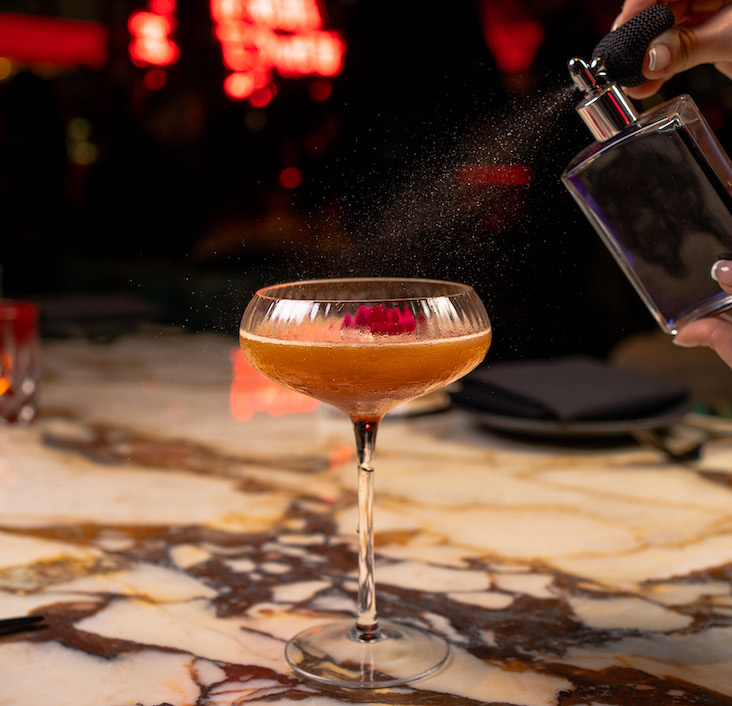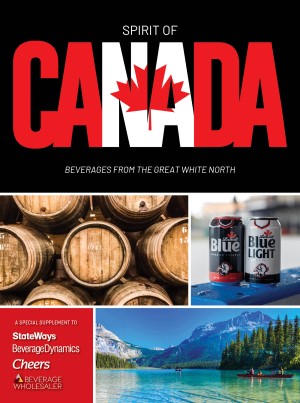Are you looking to succeed in the next century while conducting business the same way you do today? Your answer should be no, because the changing attitudes of the American public need constant reassessing.
It’s becoming more apparent that the majority of customers are seeking more out of their brief stints away from home and the office than simply drinking encounters. They’re looking for experiences—broader, more meaningful experiences involving food, beverages, a little learning and some giggles and grins.
WELCOME TO THE TASTING ERA
“People want to attend events, special occasions where they have an opportunity to be entertained, wined and dined with other similarly minded people,” contends Claire Marlin, owner of Beverage Design and Marketing, a restaurant and product consulting firm in Dallas. “Tasting dinners create the ideal blend of entertainment and the food and beverage experience. Throw in a little education and you have a wonderful event for both the guests and the host establishment.”
Tasting dinners are surging in popularity. Whether these events feature wine, beer, cocktails or spirits, the concept remains essentially the same, with each course paired with a complementary beverage. An expert is typically employed as the moderator for the evening, speaking about the featured beverages before, during and after the dinner.
According to Evan Goldstein, master sommelier and vice-president of Seagram Chateau and Estate Wines Company, there are two powerful reasons for conducting tasting dinners. “The first reason is that these events, if executed properly, are capable of being quite profitable. But there’s a more profound, long-lasting benefit, and that is these events can solidify the establishment’s reputation as a destination venue.
“If the tasting dinners are presented on a consistent basis, the wine-, beer- or spirits-minded public will begin to anticipate the events and attendance at the dinners will increase. The local media will give the events and host establishment greater coverage. This will attract more like-minded individuals to frequent the establishment. The key, of course, is to ensure that the events are executed properly.”
According to experts, proper planning, promotion and execution are critically important to these enterprises; without them, you could end up feeling like the most unpopular kid on the block, throwing a party that no one attends.
John Harding, vice-president of New York Restaurant Associates, has been hosting tasting dinners at the group’s restaurants for years, long before they became fashionable. “One of the keys to being successful is to schedule events three- to six-months in advance. It’s important that your clientele hear about the events with sufficient lead time to be in the position to plan on attending. Three weeks advance notice seems to work the best.”
“I’d go as far to say that if the notices or invitations aren’t in your guests hands a minimum of three weeks before the scheduled tasting dinner, cancel the event,” states Doug Frost, a prominent Kansas City wine and spirits consultant, and a veteran of over a thousand such events. “It’s far more prudent to reschedule an event than to run the risk of putting on a bad show.”
Goldstein recommends scheduling a series of tasting dinners up to a year in advance. “Once the schedule is set, it’s imperative to begin sending out a stream of regular correspondence regarding the upcoming events. You want people to see that you’re serious and committed. This perceived level of commitment will increase the likelihood that your calendars will find their way onto peoples’ refrigerators, instead of being crumpled and tossed out.”
To be most effective, a promotional campaign should take advantage of every form of communication. Begin by drafting a press release about the tasting dinner and sending it to the local media. Be sure to include a detailed description of the menu items being featured. Prepare a flyer and send it to your in-house client list via first-class mail, e-mail, or fax.
“One of the most effective forms of promotion I’ve found is to personally hand invitations out to your regular guests,” says Frost. “I suggest having the invitations at the front stand, so when guests are being shown their table, the host or hostess can personally present them with an invitation. It’s the personal touch that gets the results.”
VARIATIONS ON A THEME
While wine dinners may be more prevalent, beer- and spirits-oriented dinners are gaining in popularity. Setting an engaging theme for a tasting dinner is of paramount importance.
“We’ve had an enormous amount of success with tequila dinners,” reports Marlin. “There were events where we paired food with a selection of different reposados or a




